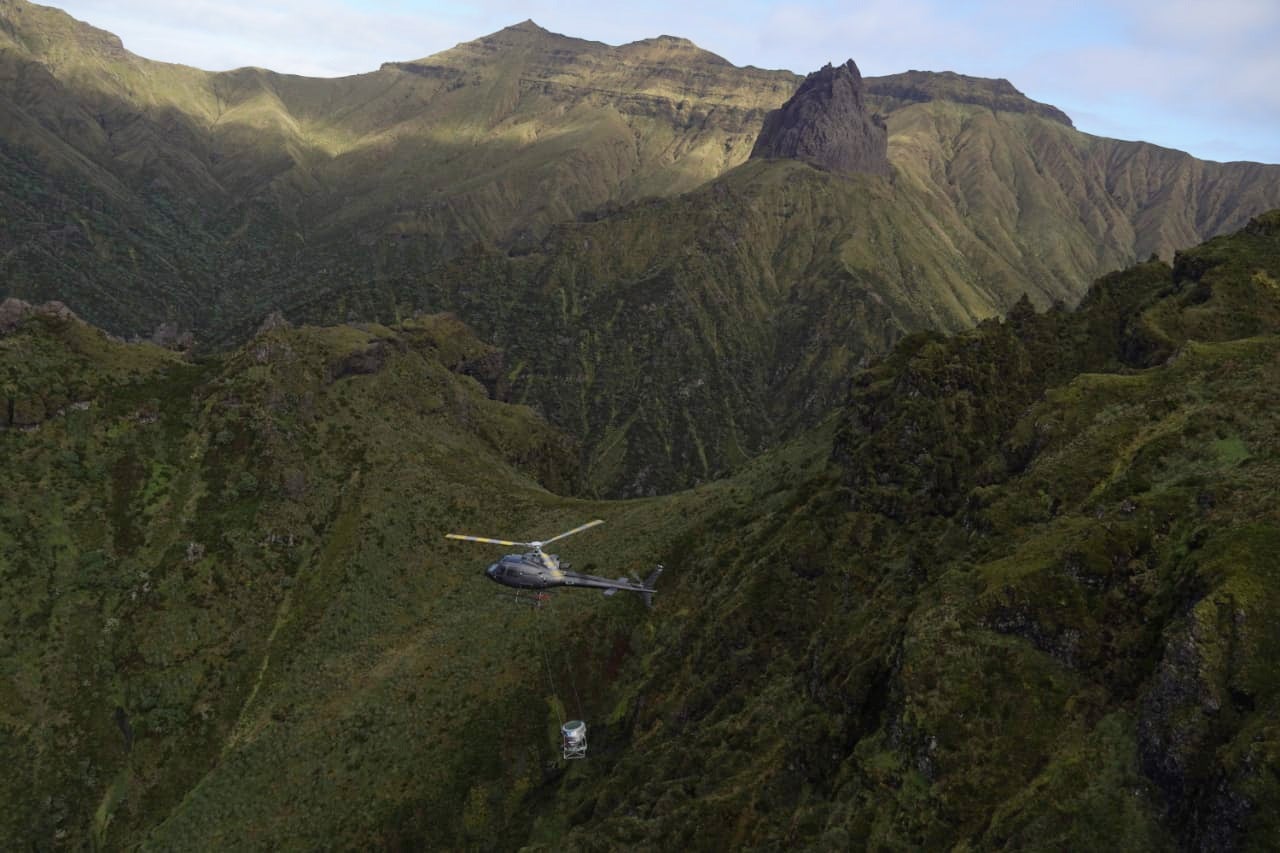Mouse spotted after eradication bid to protect threatened birds on Gough Island
Conservationists say the efforts to eradicate the non-native mice which eat eggs and chicks are needed to protect endangered species.

Your support helps us to tell the story
From reproductive rights to climate change to Big Tech, The Independent is on the ground when the story is developing. Whether it's investigating the financials of Elon Musk's pro-Trump PAC or producing our latest documentary, 'The A Word', which shines a light on the American women fighting for reproductive rights, we know how important it is to parse out the facts from the messaging.
At such a critical moment in US history, we need reporters on the ground. Your donation allows us to keep sending journalists to speak to both sides of the story.
The Independent is trusted by Americans across the entire political spectrum. And unlike many other quality news outlets, we choose not to lock Americans out of our reporting and analysis with paywalls. We believe quality journalism should be available to everyone, paid for by those who can afford it.
Your support makes all the difference.Conservationists behind a scheme to eradicate invasive mice from a remote island to save its threatened seabirds say they are devastated a mouse has been spotted there.
A team led by the RSPB has been working to eradicate the mice found on Gough Island, an uninhabited island which is part of the Tristan da Cunha UK overseas territory in the South Atlantic Ocean.
Introduced to the island accidentally in the 19th century, the rodents have since adapted to eat eggs and the flesh of seabird chicks in their nests on the ground or in burrows and have even attacked adult birds.
The situation has become so bad it is pushing species such as the critically endangered Tristan albatross and endangered MacGillivray’s prion towards extinction on the island.
A complex bid to eradicate the mice by spreading cereal bait pellets containing a rodenticide across the island from helicopters, which had been shipped out to the remote territory, took place earlier this year.
But now a single mouse has now been spotted via monitoring equipment on the island, the Gough Island Restoration Programme team have said.
The wildlife experts warned the sighting mattered because every single mouse needed to be removed to prevent the loss of more than two million seabird chicks and eggs each year.
And while only one mouse has been sighted, it is unlikely to be the only one that has survived, they said.
Beccy Speight, chief executive of the RSPB, said: “This was one of the most ambitious island restoration programmes ever attempted, bringing together experts from around the world to protect globally endangered seabirds in what many would consider one of the most remote and difficult to reach locations on Earth.
“With over a decade of planning and given the logistics involved, this has been the conservation equivalent of landing on the moon.
“We needed to take this urgent action to save millions of eggs and chicks from predation, prevent extinctions and to undo the damage caused by mice which humans unwittingly allowed onto the island in the past.”
She said: “Although only one mouse has been sighted so far, unfortunately experience would tell us that it is unlikely to be the only one.”
While the project appeared to have fallen short of its target to eradicate the non-native rodents, it was too early to know what it means or how much time the scheme had bought the seabirds on the island, she said.
“We are continuing to monitor the island and assess the situation.”
She added: “The situation at Gough and threat to the unique seabirds of this island only serve to underline the importance of effective biosecurity measures on currently predator-free islands to prevent invasive species arriving in the first place and devastating native wildlife, and the need for island restoration projects to protect affected species from extinction.”